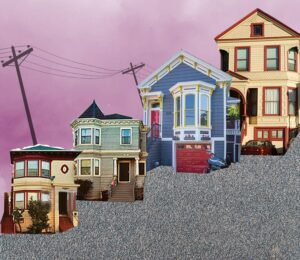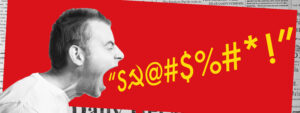I started out a fairly bossy kid. I didn’t care about making people do things; I just had so many ideas and questions. Like, why was skin color a way of deciding who was friendly, and why was physical able-ness a way of deciding who was smart? Why was it so hard to make buildings without stairs?
I was born with cerebral palsy and a missing left hand. It seemed senselessly unfair that people who were different should struggle to go places and do things. I thought if people would listen, would try things a different way, they’d be able to see how much better it was.
American public schools don’t like kids to think they know how to make the world better. I argued with adults and kids alike before I realized that people didn’t want to be questioned, or to change. I switched to getting along, being the smiley accommodating kid that people liked. I kept my nose in a book so I wouldn’t be tempted to ask the wrong kinds of questions. When I got excluded from dances or sleepovers or classes that met upstairs it was obvious I was supposed to smile and say it was okay.
By the end of junior year, I was so unused to going places that the idea of college terrified me. I met a guy, got pregnant before graduation and got married immediately afterward — at least partly to dodge the whole scary idea of college.
My husband reacted to his new responsibilities by hiding in a bottle. Before long, he started taking his frustration out on me physically. I couldn’t let my daughter grow up in an abusive environment, so I hatched a plan: first, the baby and I moved back in with my mother. Second, I divorced him. Third, I started community college.
I still enjoyed learning, but my habits of getting along and staying close to home had changed me. I was pretty sure that I didn’t know much and that nobody wanted to hear my ideas. For years I attended classes, got good grades, but I did no speaking out, no activism, no trying to change what I saw as a pretty unwelcoming world. My mom moved a lot, necessitating transfers and all the credit-juggling that entails.
When my daughter started school I began to venture out socially and met a much kinder guy. We became inseparable; he drove me wherever I needed to go, pushed my chair when I needed help, encouraged me to speak up, to ask for what I wanted, to go for my dreams. I blossomed, working as a writing tutor and advising our community college’s administration to make the campus more compliant with the Americans with Disabilities Act. Then I graduated with my Associate degree and my guy proposed. Happier than I’d been since probably about kindergarten, I started wedding plans — but it was not to be.
One Sunday morning in 1998 I woke to the horrible news that my love had died in his sleep. The autopsy showed a brain tumor.
I was beyond devastated — I’d lost not only the man I loved, but also the person who made the world safe for me to move through. For a while, all I could do was keep breathing, keep working, and give what little heart I had left to my growing daughter.
Each time I got a little stronger, a new challenge presented itself. First I needed a way to get around. Public transportation in the Detroit suburbs couldn’t meet my work schedule, so I bought an adapted van and learned to drive. My mother and daughter started arguing, so I got an apartment and became a true single mom. I entered therapy to learn how to parent without yelling. Along the way I realized that my childhood decision to get along would not help me become a strong, independent woman. I learned to set healthy boundaries and to speak up for what I want.
The Internet became a haven of connection as I reached out to find women like myself. Many of my friends were also disabled, and all of us faced the challenges of creative women.
My beloved daughter grew into a talented, independent woman. Instead of leaning on her, or my parents, or finding a man to take care of me, I wanted to be independent.
One major obstacle was the hardship caused by living on wheels in the snow and ice. California beckoned — especially the East Bay with its long connection to Disability Civil Rights. In May 2008 a friend offered to fly to Detroit and drive back with me; we took eight days to drive I-80 and celebrated our arrival in Berkeley with noodles and Thai iced teas at @Siam.
It proved impossible to find a job in the 2008 economy on a 2-year degree, so my friend and I decided to go back to school … again.
But getting along was not enough this time. My brilliant honor-society friend inspired me. I focused on my grades, but I watched her roll up her sleeves and get involved at her school. She made lists of universities to transfer to, and one day I even rode down to look at a private school in Oakland that her professors recommended breathlessly.
I fell for Mills immediately, but I thought I’d never get in — my grades were excellent but I had no honors and awards like my friend had. She urged me to try anyway, pointing out my grades and my friendliness that seemed to be a trait Mills women shared. I applied … and, well, I’m here, so you know how that turned out.
The amazing thing is that finally, that bossy little girl has decided she’s safe here at Mills. She’s the part of me that decided to run for ASMC within weeks of orientation. She decided to volunteer at The Campanil. When access problems popped up here on campus, she decided to speak up and try to make things better. Thanks to Mills and the many amazing women I see here every day, that little girl is full of ideas all over again.
Mel Petricko is a junior studying Literary and Cultural studies.


